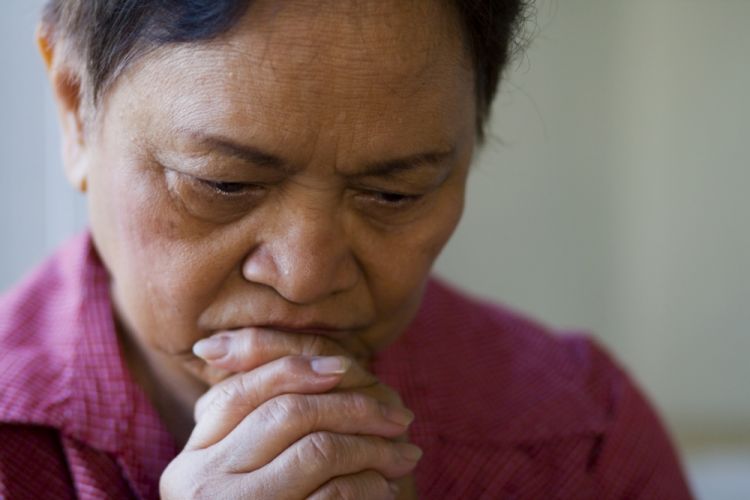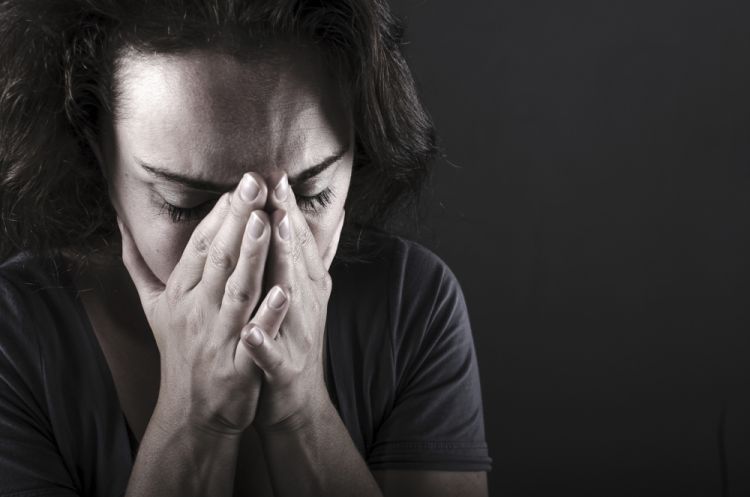Domestic abuse and Covid-19: supporting members in Wales
As reps, you’re not expected to replace specialist services. But you can develop the awareness and skills to give the best support and advice you can to someone who may be in danger or need support.

Skip to:
- Domestic abuse and the coronavirus crisis - what are the issues?
- What is domestic abuse?
- Who is affected?
- Domestic abuse is a workplace issue
- Employers have a responsibility to protect workers from abuse
- What can employers do to support workers experiencing domestic abuse?
- Examples of guidance and policies
- What can you do if you are worried a member is experiencing abuse?
- Dos and don'ts
- Perpetrators of abuse
- Full list of specialist support services
- TUC Publications
Domestic abuse and the coronavirus crisis - what are the issues?
You’ve probably seen the news reports - lockdowns around the world have resulted in an increase in domestic abuse. It is a frightening time for anyone experiencing abuse. You may be feeling concerned about some of your members, co-workers, friends or family members.
Measures to prevent the spread of coronavirus mean that many people are now isolated at home with an abuser. There may also be additional tensions in the home, such as increased money worries. Although of course these can never be an excuse for abuse.
Isolation, social distancing and the fear generated by the virus provide new opportunities for abusers to intimidate and control partners. These factors increase the risk of violence against women, domestic abuse and sexual violence. It can also make it more difficult for survivors to access safety and support networks.
As lockdown measures are eased, there may be an increase in people seeking to leave abusive situations at home. They might need additional support from the workplace during this time.
What is domestic abuse?
Domestic abuse can affect anyone and can take many forms.
Welsh Women’s Aid defines domestic abuse as: “the exercise of control by one person over another within an intimate or close family relationship; the abuse can be sexual, physical, financial, emotional or psychological.”
Examples of abuse include:
Verbal abuse
Belittling, insulting, or demeaning someone with words – alone or in front of others.
Physical violence
Any type of violence against someone such as pushing, hitting, punching, kicking, choking or using weapons.
Controlling
Attempting to restrict who someone sees or talks to. Preventing them socialising with friends or family.
'Gaslighting'
Persistently undermining or manipulating someone, so they doubt their own sanity or become convinced that they're the problem.
Financial abuse
Taking control of someone's finances to deny them money and limit their independence.
Sexual abuse
Pressuring or forcing someone to have sex when they don't want to (rape), touching or groping, making someone watch pornography.
Online abuse
Insulting or threatening someone via social media, messaging, or email.
Other forms of violence against women and girls
For example female genital mutilation, honour-based violence, forced marriage.
Who is affected?
Domestic abuse can happen to anyone, but the gender of the victim and of the perpetrator influences the risk, severity and harm caused. Around 1 in 3 women experience domestic abuse during their lifetimes.
The perpetrator is most often a partner or ex-partner. But domestic abuse can also be perpetrated by other family members or carers.
Although anyone can be affected, there can be different risks and barriers for people from different groups. For example:
- disabled women are more likely to experience domestic abuse than non-disabled women.
- black and minority ethnic women can face additional barriers to accessing support.
- older women are less likely to report domestic abuse.
- lesbian, gay and bisexual men and women may experience domestic abuse from homophobic family members and can be vulnerable to abusers who undermine their sexuality or threaten to ‘out’ them to others.
- trans men and women may have fewer services available to them.
- men may find it more difficult to disclose abuse and find more barriers to accessing support.
Domestic abuse is a workplace issue
Some people see domestic abuse as a personal or private issue. But the reality is that it can affect every aspect of a person’s life and, as trade unionists, we know that includes their working life.

There can also often be a wider impact on colleagues. In some cases, abuse and intimidation can spill over into the workplace. Or the perpetrator and the victim/survivor may work in the same workplace.
Employers have a duty of care towards workers. As such, it is important that they recognise domestic abuse as a serious issue that they can play a role in helping to stop.
The signs of abuse can be subtle, especially as people may try very hard to keep them hidden. This is often due to a sense of stigma or fear. It may be more difficult to spot the warning signs at the moment with so many people working from home and normal routines disrupted. But you may notice a change in someone’s behaviour or an impact on things like patterns of communication and work performance.
The workplace can be a place of respite for people experiencing abuse at home. For those now working at home and unable to meet up with friends and wider family due to social distancing measures, it is even more difficult for people to get support. Many may be feeling in increased danger at home.
Line managers, co-workers and trade union reps might now be someone’s most regular contact outside the home. They can help by spotting the signs and providing support. It is important that during this time, employers are doing all that they can to support workers who may be affected by this issue.
As lockdown measures are eased there may be an increase in people seeking to leave abusive situations at home. They might need additional support from the workplace during this time.
As a union rep, you can be a point of contact for members and can help them to access support. There are also things you can ask your employer to do to support workers experiencing domestic abuse.
Employers have a responsibility to protect workers from abuse
All employers have an obligation to protect their employees from abuse at work. They have a legal responsibility in promoting the welfare and safety of all staff. This is set out under
- the Health and Safety at Work Act (1974)
- the Management of Health and Safety at Work Regulations (1992)
- Reporting of Injuries, Diseases and Dangerous Occurrences Regulations (1995)
- the Health and Safety (Consultation with Employees) Regulations (1996).
In Wales, public bodies have duties under the Violence against Women, Domestic Abuse and Sexual Violence (Wales) Act (VAWDASV). This law seeks to promote an improved collective public sector response, stronger leadership and a more consistent focus on the way these issues are tackled in Wales. In addition to providing a framework of support for victims/survivors of abuse, it seeks to stop the abuse happening in the first place.
What can employers do to support workers experiencing domestic abuse?
In some workplaces, unions have negotiated specific workplace policies on domestic abuse. Or sometimes provision is made under existing health and safety, equality, dignity at work, leave or other policies.
Welsh Government guidance states that all public service employers should have a workplace policy regarding VAWDASV and give consideration to a specific policy relating to domestic abuse. Policies should provide guidance on procedures for line managers and colleagues when concerns about domestic abuse have been raised, in addition to official expectations relating to abusive behaviour.
Union reps can work with employers to bring in new policies where none exist or to adapt existing arrangements if any changes are needed in response to the particular issues presented by the Covid-19 pandemic.
Welsh Women’s Aid has produced a practical guide for managers on providing support during the pandemic.
Having a workplace policy on domestic abuse can help to make it clearer to workers the support that is available and make them feel more confident in disclosing abuse and seeking support.
Key areas of support that can be negotiated as part of a workplace policy include:
- special paid leave - paid leave is essential to enable someone to make practical arrangements when fleeing an abuser. These could include finding a new home, getting a place at a refuge, securing new school places or childcare arrangements for children, receiving legal advice, opening a new bank account, seeking medical help and counselling. Some unions have negotiated up to 20 days paid special leave. The Welsh Government has encouraged public service employers to offer paid special leave and the Workforce Partnership Council (a social partnership structure of unions, employers and Welsh Government) has issued a joint statement on paid leave for staff experiencing domestic abuse.
- flexibility – requests for flexibility, such as the need to work irregular hours or a temporary reduction in workload, should be treated sympathetically with workers fully supported.
- sickness absence – there should be no penalties under sickness absence monitoring policies for sickness absence that is related to domestic abuse.
- reassurance of job security and support– reassurance is helpful to provide a sense of stability and to help provide financial security.
- risk assessments – these should be carried out to protect workers and appropriate health and safety measures put in place where needed.
- support for redeployment requests – requests should be fully supported by the employer and carried out without any costs to the worker. New working locations should be kept confidential.
- named points of contact/support - designated points of contact and support should be identified and publicised within organisations. These could include someone from the HR department, a welfare officer and trade union reps. All designated points of contact should receive appropriate training (see below) so they can provide appropriate information and signposting.
- training - appropriate training for managers, HR officers, points of contact and the wider workforce. Training is available through Welsh Women’s Aid.
- awareness raising - raising awareness of domestic abuse as a workplace issue and publicising the support available widely to all staff.
- confidentiality and safeguarding - there should be assurances regarding confidentiality and clear guidelines on how and why information may need to be shared in circumstances where there are safeguarding grounds (e.g. safeguarding children or vulnerable adults).
- perpetrators – prevention measures and support for those at risk of becoming perpetrators. Details of how perpetrators will be managed within the organisation’s disciplinary procedures, including where the victim/survivor and the perpetrator work in the same organisation.
Examples of guidance and policies
The Equality and Human Rights Commission has published guidance for developing an effective policy for employers in Wales.

You can speak to your union to see if they have any guidance or resources, such as examples of model policies, available.
A number of unions have developed guidance and examples of model workplace policies on domestic abuse. For example, UNISON has developed detailed guidance which includes a checklist and model policy, and UCU and the GMB union have published model policies.
What can you do if you are worried a member is experiencing abuse?
1. Know how to spot the signs:
If you think someone’s behaviour is unusual, it is better to ask than to assume. Consider the use of closed questions (questions to which they can answer “yes” or “no”) in case someone else may be listening.
People will be acting differently because of social distancing, isolation, and anxiety, but you need to be aware of the possibility of abuse.
Be on the look-out for changes in behaviour or changes in regular patterns of communication. It's better to sensitively check than make assumptions.
These are some signs to look out for that might help you spot abuse:
Online silence
Normally active on social media, they're now oddly quiet. Controlling or deleting social media accounts is a control tool often used by abusers.
History
Have they previously talked about their partner's temper, jealousy, controlling nature, or perhaps substance abuse in the past?
Appearance and behaviour
Has their personality changed, do they seem subdued and less confident than usual?
If you've seen them virtually or in person, do they appear unusually unkempt or with unexplained injuries?
Many of us are of course more dishevelled as our routines vanish, and we may be suffering from low mood, but these are still signs to watch out for.
Excuses and unreliable
They repeatedly make excuses and are unavailable for a call or video chat. Perhaps you've even noticed a change in the style of their text or email messages?
Checking with a partner
They seem to need check with someone or ask their permission before they can communicate. They're overly worried about pleasing their partner.
Intrusive partner
Does their partner interrupt or disrupt calls or video chats? Is there any other behaviour that seems controlling?
2. Providing support to members – listen, believe and signpost
Keep in touch. While the lockdown and social distancing measures remain in place, this could be through regular video or phone calls, or if it is safer via emails or text messages. Be careful and sensitive.
They may not be able to talk safely, or they may not feel ready to talk about what is happening to them. But general chats and friendly messages will let them know that you are there for them if they are ready to talk at a later date. Keep checking in with them, in ways that feel safe, even if they don’t want to seek help yet.
It takes a huge amount of courage to make a disclosure. Be careful and sensitive in the way you offer or provide support. If someone is in an abusive situation, getting away from it could be very difficult. They may not be able to leave. They know their situation best, so be led by them.
Encourage them to call the Live Fear Free helpline 0808 80 10 800
The Live Fear Free Helpline can provide support to anyone affected by domestic abuse or sexual violence. They can also provide advice to those concerned about a colleague, friend or family member. Their helpline is open 24 hours a day, 7 days a week.
They can also provide advice and support by:
• Text on 07860077333
• Web chat at livefearfree.org.uk
• Email info@livefearfreehelpline.wales
Restrictions on movement put in place during the pandemic do not apply in situations where people need to leave their homes to seek help due to domestic abuse.

If they disclose serious domestic abuse, you should encourage them to call 101, or 999 if the situation is critical. If someone is in danger and needs help immediately, they can make a ‘silent’ call to the emergency services. They can dial 999 and press ‘55’ when the operator answers to indicate that they need help but can’t talk.
- Welsh Women’s Aid has practical advice and information on seeking support.
Always be sensitive to the situation and remember that escaping the abuser may not be an option. You can give people advice on how to keep themselves safe and minimise the risk of violence. They can:
- try to keep their phone charged and with them at all times
- save helpline numbers under a disguised name
- set up a secret code word with someone else who can raise the alarm for them, with a backup person in case the first is ill or self-isolating
- keep themselves safe online and make it harder for an abuser to track their activity
- keep a hidden log or journal of all abuse as evidence. The Brightsky mobile app is one way you or they can do this discreetly.
- be aware of any warning signs in their abuser’s behaviour
- think about the best parts of the home to be in if they need to flee or lock themselves away (they should consider things like access to escape routes, access to a phone, a lock or method of barricading themselves in a room)
- avoid areas such as the kitchen, garage or anywhere an abuser could grab a weapon
- plan an escape route – thinking about where they will go and planning a place to meet with their children if separated
- dialling 999 if they feel they are in danger and using the Silent Solutions system if they cannot speak freely by pressing 55. This makes the call handler aware they are in danger and can’t speak.
- making sure children know how to call 999 and give their address or use Silent Solutions
Dos and don'ts
There are some important dos and don'ts for how you give support:
Do
- Keep the lines of communication open to reduce isolation.
- Remember someone may not be able to speak freely if their abuser is monitoring their exchanges.
- Ask if they can talk freely before you ask if there's anything wrong.
- Ask them to cough or repeat a word to alert you if something isn't right.
- Agree a secret code word they can use with you to raise the alarm.
- Let them know you're there to help and the conversation is confidential.
- Listen carefully to what they say and support their choices.
- Make them aware of other ways they can get help and support. Give choices and options without telling them what to do.
- Acknowledge and validate their concerns. They may talk about feeling nervous, scared and worried. Validating their concerns can show that you will take them seriously.
- Ask them if there are any changes to working arrangements or anything the employer could do to support them. Offer to support them if they need help in asking for these.
- Do keep boundaries and understand the limitations of your role, you are not a counsellor and need to take care of yourself too.
Don't
- Don't wait for someone to come to you or ignore a situation that doesn’t feel right. If you suspect abuse, ask sensitively. If you’re concerned about anyone you can call the Live Fear Free helpline for advice on what to do.
- Don't dismiss or doubt them if they disclose anything to you.
- Don’t press them for information - this might make them feel disbelieved or interrogated. Let them tell you what feels right for them.
- Don't call the police or involve others against their wishes – only do so if you believe their life is in imminent danger.
- Don't pressure or steer them towards any course of action – let them know the options and support them with what they want to do. Safely signposting to local support services or the Live Fear Free Helpline is always the best approach.
- Don't insist they leave the house – they may be forced to return.
- Don't pressure them or judge them for not trying to escape.
- Don’t make any interventions that could potentially endanger you and/or the survivor. If you suspect someone is in immediate danger of physical violence, call 999 straight away.
Welsh Women’s Aid has produced a COVID-19 bystanders toolkit which has more information and practical advice on how to support someone who is experiencing abuse.

Perpetrators of abuse
The Respect phone line provides free support to help perpetrators choose to stop. It has a free phoneline which is open Monday to Friday, 0808 802 4040.
Full list of specialist support services
Live Fear Free Helpline
The Live Fear Free Helpline can provide support to anyone affected by domestic abuse or sexual violence. They can also provide advice to those concerned about a colleague, friend or family member. Their helpline is open 24 hours a day, 7 days a week on 0808 80 10 800. You can also get advice and support by:
• Text on 07860077333
• Web chat at livefearfree.org.uk
• Email info@livefearfreehelpline.wales
Welsh Women’s Aid
Welsh Women’s Aid is a national charity in Wales working to end domestic abuse and all forms of violence against women. It has produced a COVID-19 bystander toolkit and has information and support on its website for anyone needing help and for those worried about someone else.
Bawso
Bawso provides specialist services for BME communities. They support BME people in Wales experiencing domestic abuse and other forms of abuse, including female genital mutilation, forced marriage, human trafficking. They have a 24-hour helpline 0800 731 8147
Dyn Wales
Dyn Wales provides support to heteorsexual, gay, bisexual and trans men who are experiencing domestic abuse from a partner: 0808 801 0321
Safeguarding Wales
The Welsh Government’s safeguarding guidance can be found here. The Wales Safeguarding Procedures detail the essential roles and responsibilities to safeguard children and adults who are at risk of abuse and neglect. There is also a free All Wales Safeguarding App available on Google Play and a version available on the App Store.
New Pathways
New Pathways provides Sexual Assault Referral Centres (SARCS). Often victims of rape and sexual assault can feel that they have limited choices and believe that telling someone what happened to them will result in events quickly becoming out of their control. SARC services are completely client focussed and designed to ensure that clients receive the right information to enable them to make their own choices about what happens next. This includes being able to self-refer to a SARC and receive immediate support without having to report to the police. Tel: 01685 379 310; email enquiries@newpathways.org.uk
Respect
Respect provides support to help perpetrators manage their behaviour. They also provide for support male victims and young people experiencing violence in close relationships: 0808 8024040
Men’s Advice Line
The Men’s Advice Line is a confidential helpline for male victims of domestic abuse and those supporting them. It can be contacted on 0808 801 0327.
Galop - for members of the LGBT+ community
If you are a member of the LGBT+ community, Galop runs a specialist helpline on 0800 999 5428 or email help@galop.org.uk
Economic abuse
If you are concerned about how coronavirus may affect your finances and leave you vulnerable to economic abuse, please see the advice provided by HM Treasury on what support is on offer. The charity Surviving Economic Abuse has also provided additional guidance and support.
Rights of Women
National family law legal helpline: 020 7251 6577 or www.rightsofwomen.org.uk
Hestia
Hestia provides a free-to-download mobile app, Bright Sky, which provides support and information to anyone who may be in an abusive relationship or those concerned about someone they know.
Chayn
Chayn provides online help and resources in a number of languages, ranging from identifying manipulative situations and how friends can support those being abused.
Home Office Forced Marriage Helpline
The Home Office Forced Marriage Unit (FMU) can offer advice if you’re trying to stop a forced marriage or you need help leaving a marriage you’ve been forced into. They have a helpline: 020 7008 0151 and can be contacted at fmu@fco.gov.uk.
NSPCC FGM Helpline
Children’s charity the NSPCC has a webpage and a free helpline for anyone who is worried that a child is at risk of or has already had Female Genital Mutilation (FGM). Tel: 0800 028 3550 or email fgmhelp@nspcc.org.uk
Support for professionals
SafeLives is providing guidance and support to professionals and those working in the domestic abuse sector, as well as additional advice for those at risk.
TUC Publications
Domestic violence and the workplace
Our report on the impact domestic abuse has on women’s working lives
Unequal, trapped and controlled
TUC and Women’s Aid joint report on women’s experience of financial abuse.
Safe at home, safe at work
ETUC’s report on trade union strategies to prevent, manage and eliminate violence against women.
